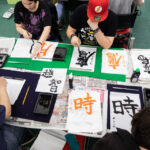Staying Motivated in Japanese Study: Secrets for Success at Language Schools in Tokyo
Category: Diary, Information
Actually, when you first start attending a Japanese language school, you’re usually super motivated. But after a while, you might start to feel like, “Huh? I don’t think I’m improving at all…” or “I’m just so tired.” I had the same experience with English when I was a student, so I know that feeling very well.
From what I’ve seen while working here, students who manage to continue until the very end and achieve results all share certain traits. Today, I’d like to share those secrets with you as concretely as possible.
There are so many Japanese language schools in Tokyo, but no matter which one you choose, I’m sure what I share will be useful!
1. First, make your reason for studying Japanese clear
This is incredibly important! Surprisingly, many people start “for no particular reason,” but if your purpose is unclear, you’ll find it very hard to get back on track when you stumble.
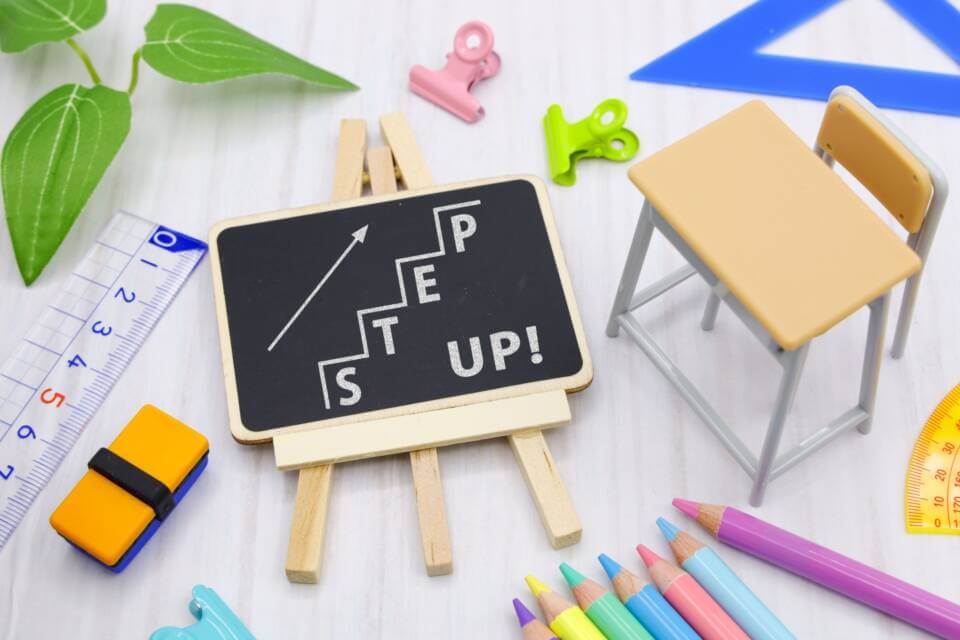
Among the students I’ve seen, those who managed to keep trying until the end all had a clear goal. For example, “I definitely want to work at a Japanese company!” or “I want to watch anime without subtitles!” The reason doesn’t matter—it’s whether the feeling is genuine that counts.
If you want to seriously study business Japanese, it’s best to choose a school that offers online job-hunting preparation courses or brush-up business courses. Some schools even have former HR professionals from companies join the classes, so you can learn about real business scenes.
If your goal is university entrance, schools that offer thorough JLPT preparation are recommended. From N5 to N1, programs that allow step-by-step learning will guarantee steady progress. General Japanese courses are also perfect, since they cover reading, writing, speaking, and listening equally—great for test prep too.
At our school, for example, some students love manga and join the manga course with the dream of becoming manga artists in Japan. They study with so much joy that even watching them makes us happy. Since we collaborate with a specialized school in Akihabara, students can directly learn professional techniques. Over 100 students from 37 countries have already completed this course, creating wonderful works.
Another unforgettable student joined the sushi course to become a sushi chef. Through collaboration with a luxury sushi brand, he learned directly from professional sushi chefs. I’m sure commuting to Futako-Tamagawa for lessons was tough, but he always came to class with sparkling eyes. When you have a goal, your studies look completely different.
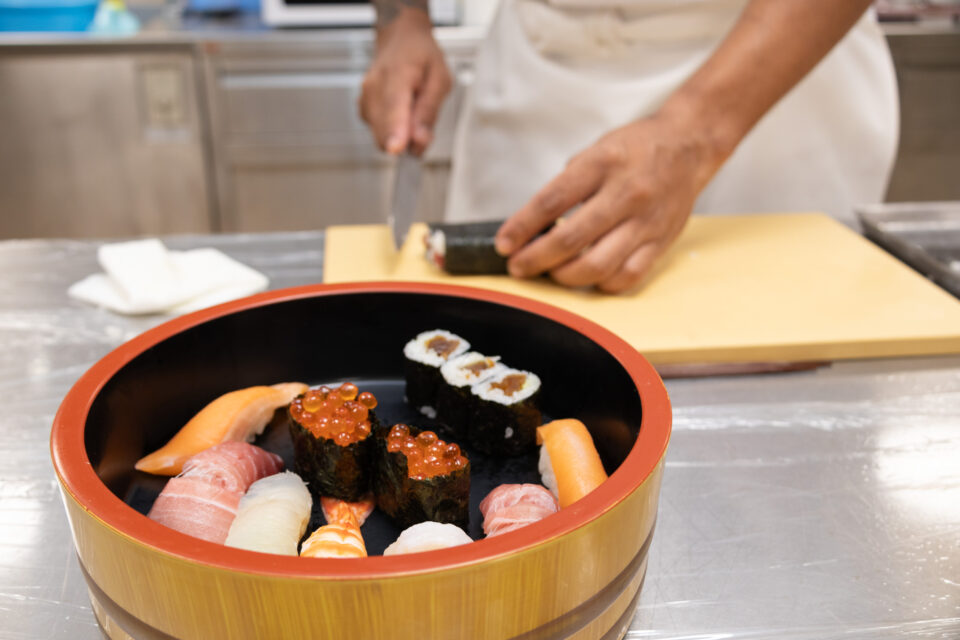
2. Making friends from many countries makes it much more fun
I highly recommend this! Studying alone can feel lonely, but things are totally different when you have classmates.
At our school, students come from over 70 countries, so you’ll meet people from all over the world—Europe, Africa, South America, and more. At first, students may talk in English, but little by little, they start using Japanese, which becomes a great part of learning.
Because we’ve been around for more than 30 years, we’ve built a global network. Our website supports 15 languages—English, Korean, Chinese, French, Spanish, Russian, Arabic, and more. I don’t think you’ll easily find such a diverse international environment, even in Tokyo.
The other day, I overheard a German student and a Thai student saying in Japanese, “Yesterday’s test was difficult, huh?” It was heartwarming. They were also sharing things like, “In my country, this grammar has a different meaning,” and helping each other.
Studying together makes you realize, “I’m not the only one,” and “If they’re working hard, I should too.” Having friends who share the same struggles feels very encouraging.
Our school’s location, just five minutes’ walk from Suidobashi Station in Chiyoda Ward, probably makes it easier for students from different countries to attend. It’s right in central Tokyo, with excellent access, and many students enjoy tea or meals together after class.

3. Find joys other than studying
Honestly, repeating grammar and kanji memorization can get boring. Back when I was a student, staring at English word flashcards made me think, “I can’t take this anymore!” (laughs).
But if you can also study Japanese culture, it becomes so much more fun. This is something special you can enjoy at Japanese schools in Tokyo.
Tea ceremony classes are especially popular. Since we have a tatami room, you can experience authentic tea ceremony. At first, students say “Sitting in seiza is painful,” but gradually they get better at preparing tea until eventually they say, “I want to make tea for my family back home.” Moments like that make me grateful for my job.
In the short-term tea ceremony course, students learn directly from a Urasenke teacher. With 8 lessons, you can master a basic tea-making style, even as a beginner. You also receive materials with English translations and videos, so you can review at home.
The manga course is also full of smiles. Students who could only draw stick figures at first end up drawing impressive characters. With 1-month, 2-month, or 3-month programs, you can choose a duration that suits your schedule. At the graduation ceremony, seeing their works always moves me.
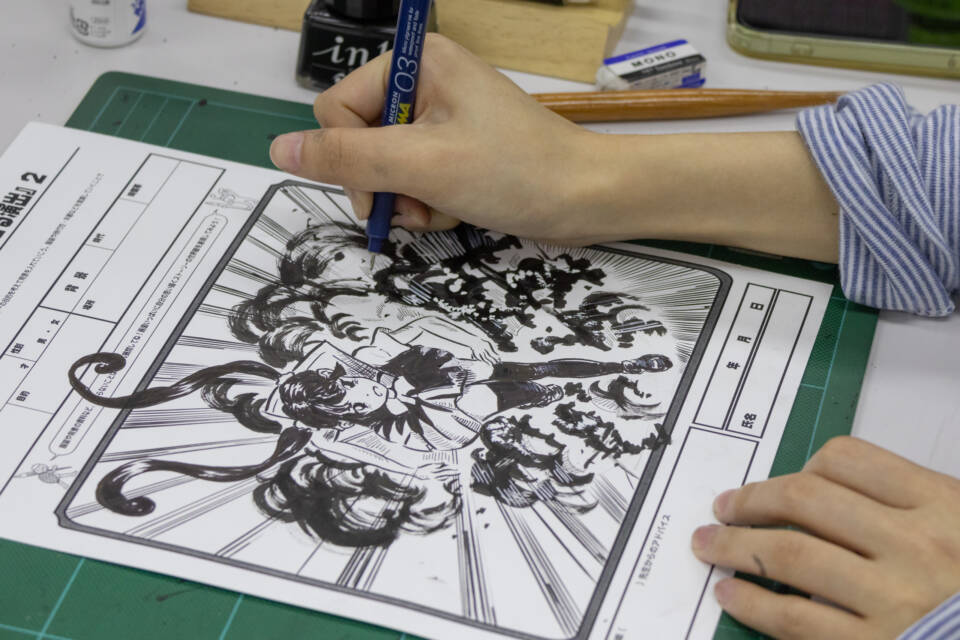
In the Kintsugi (golden joinery) class, students work with such serious faces, but when they complete their pieces, their joyful expressions are priceless. Since this program was created through partnership with a company over 100 years old, you can learn authentic skills. One student said, “It’s beautiful how broken things can be reborn,” and I felt glad we could share Japanese culture. Students bring in their own broken pieces to repair, which is also very practical.
Our summer and winter holiday courses are extremely popular too. In programs lasting from 3 to 7 weeks, you get both Japanese learning and cultural experiences. There are short trips included, like visiting Nikko or Kamakura, and you even receive a yukata. Even in a short time, your Japanese will improve, and the experience becomes a lifelong memory.
4. It’s important not to overdo it—study at the right level
This is also very important. If you push yourself into a difficult class, it’s easy to get discouraged.
At our school, we divide levels into seven stages, from beginner to advanced, so you can truly progress step by step. There’s a test every month, and once you’re ready, you can move up. This system allows everyone to study at their own pace.
For example, Beginner I (equivalent to JLPT N5) aims for answering questions about yourself and having basic conversations in limited daily situations. You learn to write hiragana and katakana correctly, understand basic kanji, and read about 250-character passages.
At Intermediate I (equivalent to late N3), you can handle simple conversations on familiar topics, describe conditions at a hospital, negotiate while shopping, and use more varied expressions. You’ll know around 300 kanji and understand modern Japanese topics.
At Advanced II (equivalent to late N1), you can communicate fluently and naturally, participate in discussions, and express opinions clearly. You’ll be able to read around 2000 kanji and write texts on complex topics too.
The key is not to overdo it. Take things slowly and steadily. Each small “I did it!” builds up your confidence.
In our General Japanese course, there are kanji classes on Tuesdays and Thursdays. Both students from kanji-using countries and non-kanji-using countries can proceed at their own pace. Learning kanji is tough, but this helps build strong vocabulary and guessing skills.
5. Create many opportunities to actually speak
Studying with textbooks is important, but you really won’t improve unless you actually speak.
Watching students in our conversation courses, I’ve seen how quickly they improve. Students who couldn’t talk at all at first were chatting happily just 3 months later—it’s surprising!
Our Japanese Conversation Course has the advantage of starting every Monday. It thoroughly builds conversation skills through vocabulary, grammar, listening, speaking, discussion, presentations, pronunciation correction, and everyday spoken Japanese.
The Beginner Practical Course is designed for total beginners. Over 4 weeks, you’ll learn hiragana and katakana plus useful words and phrases for life in Japan. The focus is on learning to communicate actively, developing your ability to actually use Japanese.
In the business Japanese classes, students even practice interview situations. At first, they’re stiff with nervousness, but gradually they learn to speak confidently. Eventually, some even get real jobs in Japanese companies. Being there in those moments is so rewarding.
Students also learn practical skills—correct use of honorifics, writing business emails, handling phone calls, and speaking in meetings. With guidance from instructors who have real HR experience, you can prepare for genuine business scenarios.
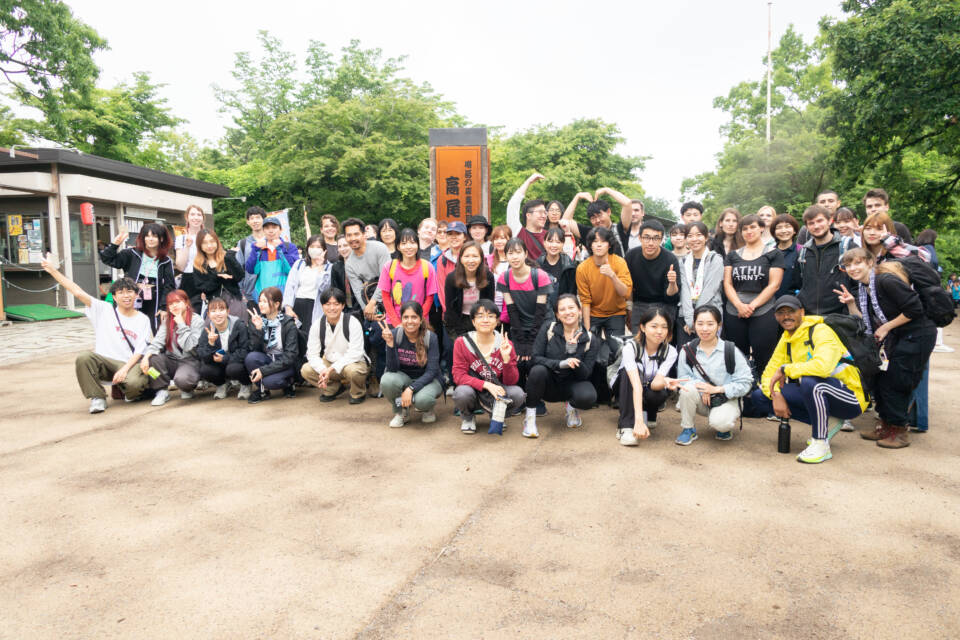
6. Don’t hesitate to ask for help when you need it
There are many problems you can’t solve by worrying alone. In such times, please don’t hesitate to ask for help.
At our school, we have staff who can speak various languages, so if explaining in Japanese is difficult, you can consult in English, Korean, or Chinese.
Private lessons are also available, so if there’s something you really don’t understand, you can be taught one-on-one. Teachers customize lessons to fit your personal concerns, covering beginner Japanese, general conversation, daily Japanese, business Japanese, job-hunting Japanese, JLPT prep, etc.
There are also online private lessons, so you can study from home. Both in-person and online, qualified professional teachers provide high-quality lessons.
Please don’t think, “I’m too embarrassed to ask questions.” Leaving things unclear is a waste. While enrolled, you can also join extracurricular activities and exchange events, giving you connections with teachers and other students outside class as well.
7. Make good use of online learning
Learning has become so convenient recently. Even if you can’t come to school some days, you can take online classes at home.
The JLPT online prep courses are very efficient. They focus intensively on grammar, making them especially popular before exams. They cover N3, N2, and N1, analyzing grammar patterns thoroughly. With practice exercises, the lessons are highly practical.
The Online Business Japanese Brush-up Course covers important workplace situations in just 10 weeks. Beginning with honorifics, greetings, and manners, you also learn phone call handling, email writing, presentations, and running meetings.
Something I personally find fascinating is the online tea ceremony lesson. The fact that you can study tea ceremony from anywhere in the world is amazing—it started during COVID but some students are still continuing now.
We also have an online Japanese Teacher Training Course. There’s growing demand for Japanese teachers who can use ICT tools, so this is a very useful program. Students learn how to make slide materials, animations, and use Zoom effectively—ideal for those aiming to become Japanese teachers.
The best part of online learning is being able to continue even when you’re busy.
8. Set many small goals
Big goals like “I’ll pass N1!” are important, but if that’s your only goal, it can feel too far away and demotivating.
Instead, setting small goals like, “This week I’ll memorize all the hiragana,” or “By next month I’ll be able to introduce myself in 3 minutes,” gives a lot more chances to feel a sense of achievement, keeping your motivation up.
That’s also why we have programs of different lengths, from short-term to long-term. Some students want an intensive 4-week course, while others prefer 2 years of steady learning.
Some courses are as short as 2 weeks. Thinking “Let’s try just 2 weeks first” reduces the psychological burden. Once you feel confident, you can extend your studies.
For those coming on long-term student visas, 1–2 year programs are recommended. You can steadily level up while also receiving full support with further education or job hunting.
9. Actively participate in school events
This is something I really want to emphasize! Non-classroom events are both fun and educational.
Participating in hiking trips in spring and summer or cultural exchange activities gives you chances to learn Japanese expressions not found in textbooks. For example, saying “The cherry blossoms are beautiful” while actually seeing them creates lasting memories.
Exchange meetings are great because Japanese people participate too, giving you practice speaking with native speakers. At first, students are nervous, but they gradually relax and eventually even make Japanese friends.
Another feature of our school is the abundance of international exchange opportunities. You can exchange information with students from other countries and enjoy talking with Japanese people.
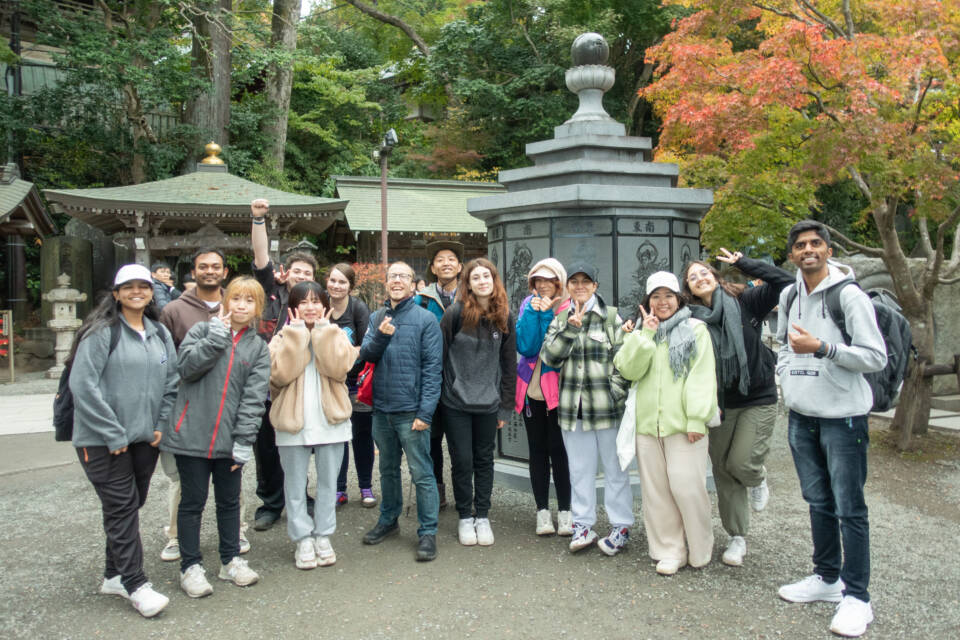
10. Have someone help you think about your future
Finally, this is also very important. If you can see what lies beyond your studies, it gives today’s efforts clear meaning.
For students aiming for higher education, we help them research universities, assist with application forms, and give tailored advice through individual counseling. We also hold entrance guidance sessions, and staff may even accompany students to external guidance fairs.
Support is available for graduate schools, universities, and technical colleges, from application checks to interview practice and admission procedures. Since many schools require JLPT N2, we create study plans targeting that level as well.
For students aiming for employment, we review resumes, practice interviews, and even offer introductions to partner recruitment agencies. Guidance is provided to build strong “Japanese language ability,” “communication skills,” and “vitality”—all qualities companies are looking for.
Our teachers and staff truly think about each student’s future seriously. Please don’t worry alone—consult with us anytime.
We also help with homestays and apartment searches. With a dedicated homestay coordinator, we can provide high-quality matching. Options include guesthouses, share houses, or apartments.
In Conclusion
This was a long explanation, but in short: “Don’t try to do everything alone—please consult us anytime.”
Studying Japanese is indeed challenging. I faced many moments wanting to quit when I was studying foreign languages, too. But with classmates, teachers, fun activities, and clear future goals, you can definitely keep going.
Having over 30 years of history as a school, I can say this confidently: students who persevere until the end gain wonderful futures. Some go on to further studies, some find jobs, some start businesses, and some return home to succeed. The paths differ, but their Japanese studies always prove useful.
Studying Japanese in Tokyo is truly an amazing experience. While experiencing Japanese culture with peers from around the world, you work toward your future dreams. I hope you use this precious time meaningfully.
You’ll definitely be fine. And remember—when you’re struggling, consult us anytime. Let’s all work hard together!
タグ: English



